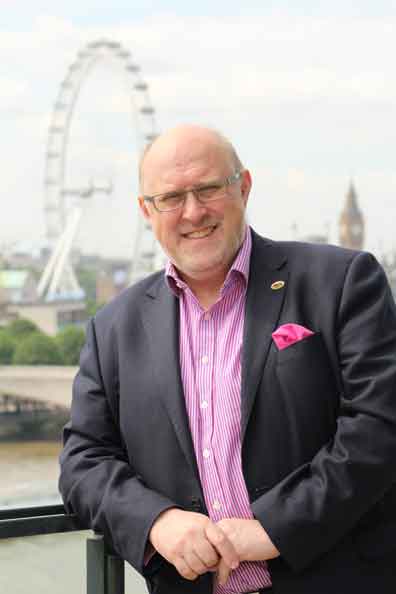Mental health and well-being are being spoken about increasingly in business setting across the globe and security professionals are becoming more involved in this crucial conversation. If anything, some of the roles and situations that are peculiar to security increase the pressures on mental health and security leaders must play their part. In fact, in a 2021 study conducted by the University of Portsmouth, 40 percent of security workers were suffering from post-traumatic stress disorder (PTSD) or other mental health illnesses.
Whilst talking about the subject is a start and helps to break down stigma, it is not a solution. According to the Centers for Disease Control and Prevention (CDC), workplace health promotion programs have proven to be successful, especially when they combine mental and physical health interventions. Having a robust mental health support program is good for business and can be integrated into Enterprise Security Risk Management (ESRM) to provide better security as 1 in 4 people will suffer from mental ill health in their lifetime.
So, what can we do?
As a starting point, I would suggest that we treat people as people and not as symptoms.
Show Empathy
If you know someone has been unwell, don't be afraid to ask how they are. They may not want to talk about it, but letting people know that it is not a taboo subject, may help. Telling someone to “cheer up” or to “pull themselves together” does not help.
Be mindful that someone suffering from mental health issues may need some additional help in the workplace, in the same way as someone suffering from physical condition may require flexible working schedule.
Encourage a culture that supports a healthy work-life balance and enables a culture of caring.
Awareness is Key
We ask all people in an organisation to be aware of possible security issues irrespective of whether they are security professionals (e.g., tailgating access control gates, people being where they should not be, acting suspiciously). In the same way, you don’t need to be a metal health professional to be aware of some of the signs that there may be an issue with a team member-- it is just being a good colleague and employee.
Employers and employees both need to be aware of the signs to look for as well as any requirements to support mental health that apply in your country.
Recognizing the Signs
Some signs are not exclusively indicative of mental illness, but being aware and acting appropriately can help. [Caveat: Do not give medical advice unless you are qualified to do so.]
- A change in behaviour. Is someone who was previously outgoing and friendly, now withdrawn, and irritable?
- Do they appear anxious or worried?
- Are they acting aggressively?
- Are they having Mood swings.
- Is someone, who is normally punctual and well presented, now regularly late and dishevelled?
- Has their interaction with colleagues changed?
- Taking an occasional day off for your mental health can be a good thing, but prolonged and regular absences can indicate other issues.
- Increase in alcohol consumption and use of illegal substances can also be a sign of self-medication to deal with mental health problems.
- Being less productive at work.
- Confusion.
- Inability to complete tasks.
- If you have concerns, raise them with HR or management.
Working from home puts additional pressure on employers to ensure staff welfare.
As a 25-year ASIS International member, I am pleased that we are one of the organisations taking mental health and wellbeing seriously. The Mental Health and Wellness Working Group in ASIS Connects, which we established in 2022, is a good forum for sharing resources and asking questions of peers. There have been numerous articles published in Security Management on the topic of mental health (e.g., 6 Ways Managers Can Prioritize Security Officer Mental Health) as well as webinars (e.g., Mental Health Awareness in the Workplace).
We will not solve this problem easily or quickly so I would encourage everyone to do what they can and importantly be self-aware and look after others as well as their own mental health. Ask a colleague how they are today and mean it. #SecurityMindsMatter
 Mike Hurst, CPP, CPOI, has been an executive security recruiter for over 30 years. A long-term volunteer leader at Chapter and Regional levels, he is the current secretary of the Extremism and Political Instability Community. In 2022, he set up the Mental Health and Wellness Working Group in ASIS Connects.
Mike Hurst, CPP, CPOI, has been an executive security recruiter for over 30 years. A long-term volunteer leader at Chapter and Regional levels, he is the current secretary of the Extremism and Political Instability Community. In 2022, he set up the Mental Health and Wellness Working Group in ASIS Connects.